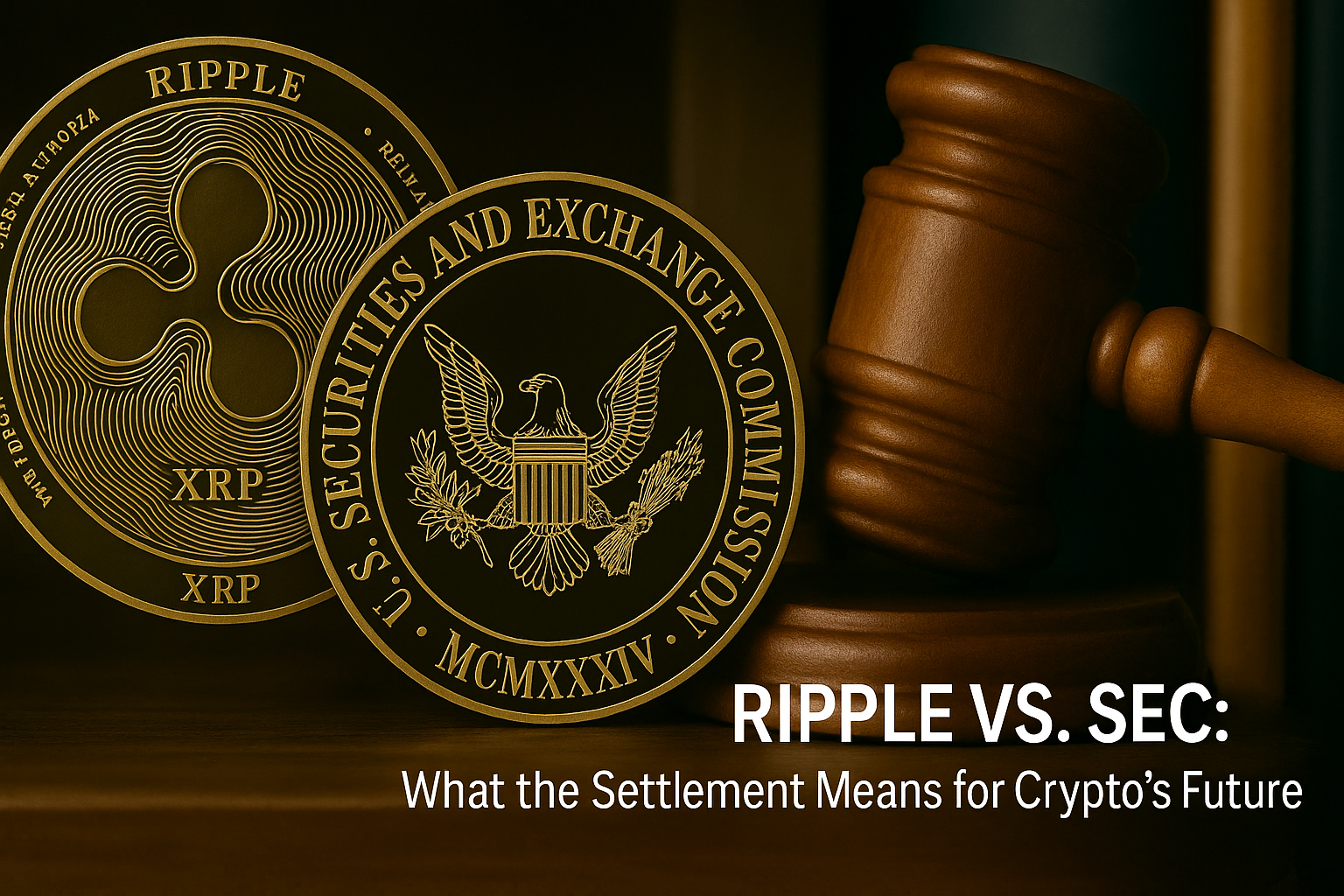
The Battle: Ripple vs. SEC
The long-running legal battle between Ripple Labs and the U.S. Securities and Exchange Commission (SEC) has been one of the most pivotal cases in the crypto industry. At the heart of the dispute is whether Ripple’s XRP token should be classified as a security. The SEC’s lawsuit, filed in late 2020, alleged that Ripple’s sale of XRP was an unregistered securities offering worth over $1.3 billion. Ripple, on the other hand, maintained that XRP is a digital currency, not a security.
This legal saga has dragged on for years, casting a shadow over the broader cryptocurrency market. For many crypto investors, developers, and blockchain enthusiasts, the outcome was seen as a bellwether for how U.S. regulators might approach other digital assets.
Settlement: A Turning Point
Recent reports suggest that the SEC has filed for a settlement with Ripple, signaling a major shift in this high-profile case. While full details are still emerging, early indicators point to a possible resolution that could redefine regulatory approaches to crypto tokens.
A settlement could be interpreted as a partial victory for both sides. For Ripple, it could mean the end of a protracted legal battle, freeing up resources and removing a cloud of uncertainty that has hampered its growth in the U.S. For the SEC, a settlement might allow it to assert its regulatory reach while avoiding a potentially unfavorable court ruling that could weaken its enforcement capabilities in the crypto space.
Crypto markets have already reacted to the news. XRP saw a price surge of nearly 10% within hours of the settlement announcement, and broader altcoin sentiment turned bullish. This development underlines how legal clarity—or even the prospect of it—can have an immediate impact on crypto prices.
Market Implications for Crypto
The Ripple case has far-reaching implications for the entire crypto market. A favorable outcome for Ripple could embolden other blockchain projects that are currently wary of launching tokens in the U.S. due to regulatory ambiguity. Conversely, if the settlement leans heavily toward the SEC’s interpretation, it could set a precedent that makes token issuance more cumbersome and legally fraught.
For investors, this case serves as a reminder of the regulatory risks inherent in crypto investing. While decentralized finance (DeFi), NFTs, and other blockchain innovations promise vast opportunities, they also exist in a regulatory gray area that can change overnight.
Institutional players are watching closely too. Regulatory clarity is one of the key hurdles preventing large-scale institutional investment in crypto. A settled Ripple case—especially one that clarifies what constitutes a security under U.S. law—could open the floodgates for institutional capital, boosting Bitcoin (BTC), Ethereum (ETH), and other major coins.
The Bigger Picture: Crypto Regulation
The Ripple vs. SEC saga highlights the urgent need for updated crypto regulations. The current U.S. legal framework was largely built around traditional securities and commodities, leaving crypto assets in a limbo. While the SEC has taken a firm stance on enforcement, critics argue that a more nuanced, crypto-specific framework is needed to foster innovation while protecting investors.
Globally, other jurisdictions are moving faster. The European Union recently passed its Markets in Crypto-Assets (MiCA) regulation, aiming to provide clear guidelines for the crypto industry. Countries like Singapore and Switzerland have also established themselves as crypto-friendly hubs by offering regulatory clarity.
The U.S., however, risks falling behind in the blockchain race if it does not modernize its regulatory approach. The Ripple case, whether resolved through settlement or a landmark court ruling, underscores this urgency. Crypto enthusiasts, investors, and policymakers alike will be watching closely as the final chapters of this legal drama unfold.
Final Thoughts
The Ripple vs. SEC case is more than just a legal battle—it’s a defining moment for the cryptocurrency industry. Whether you’re an XRP holder, a DeFi developer, or simply a crypto enthusiast, the outcome of this case has the potential to reshape the regulatory landscape for years to come.
With the settlement in sight, the crypto market is entering a new phase of cautious optimism. While many uncertainties remain, one thing is clear: the world of crypto is evolving fast, and regulatory clarity will be key to unlocking its full potential.
Stay tuned for more updates as we track the Ripple case and its impact on the future of blockchain and digital assets.

